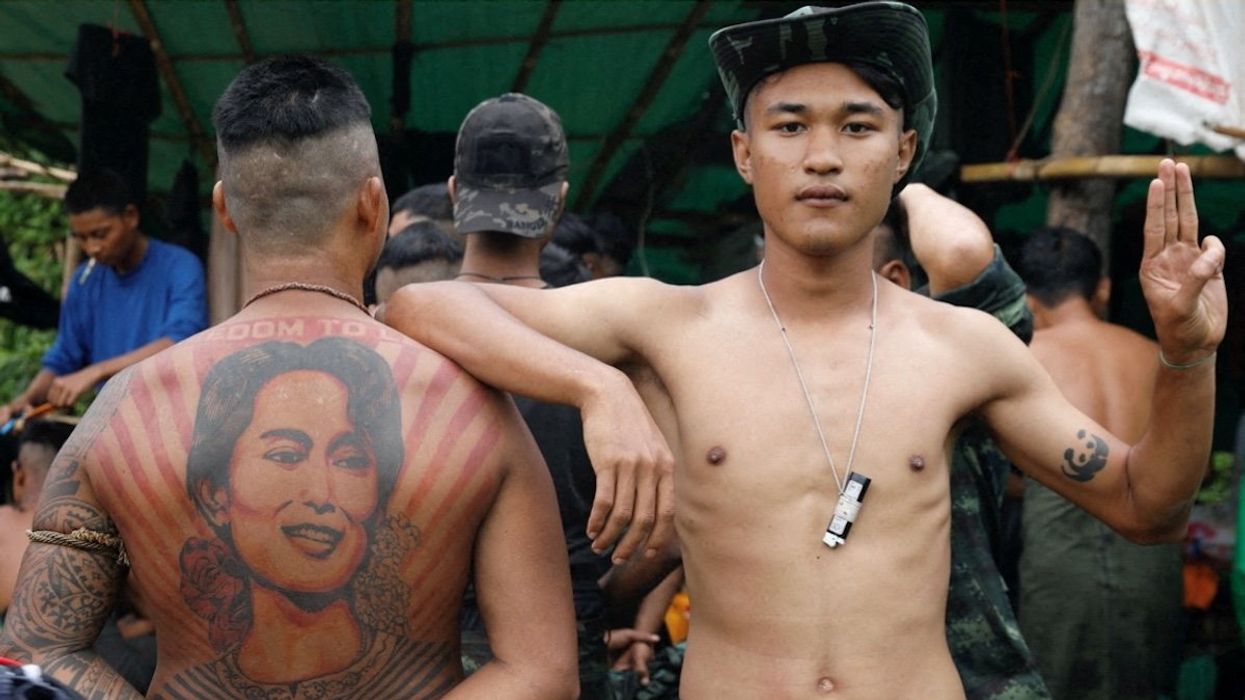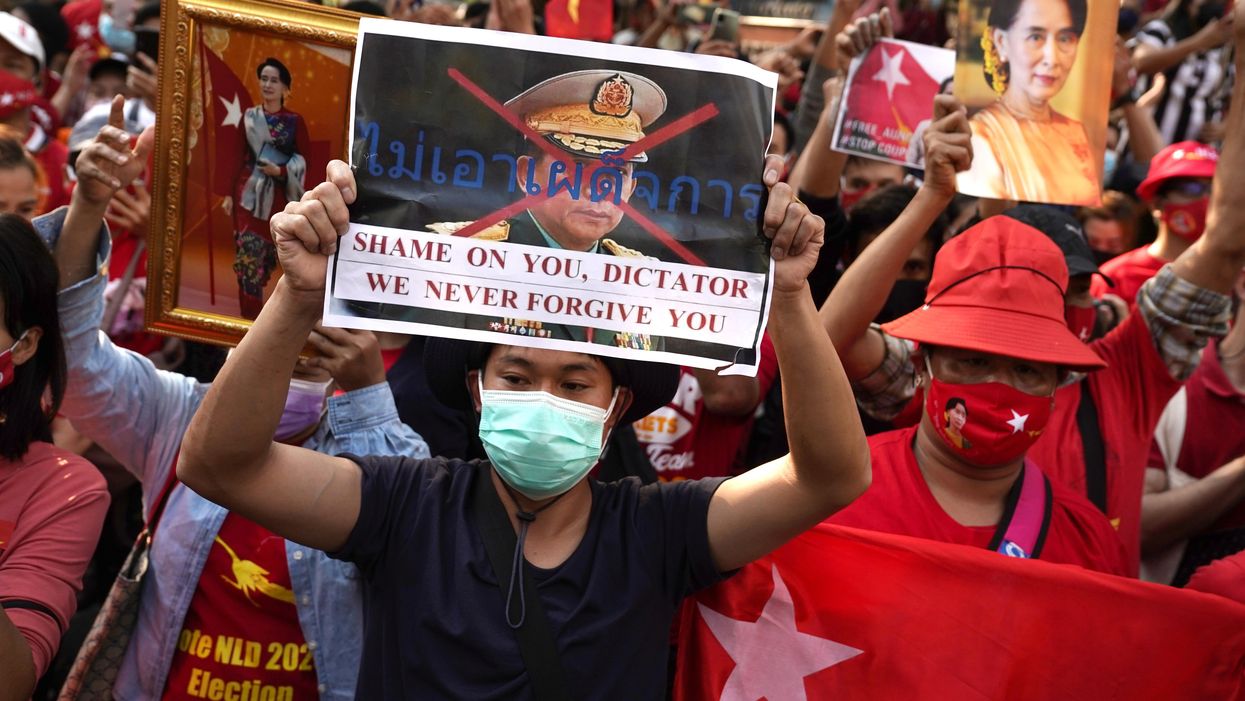What We're Watching
Myanmar junta calls for peace talks with minority militias — not pro-democracy fighters
After a year of rebel victories that have left Myanmar’s ruling junta on the defensive, its chairman, Gen. Min Aung Hlaing, invited ethnic minority armies to peace talks in a state television broadcast on Tuesday.
Oct 16, 2024


